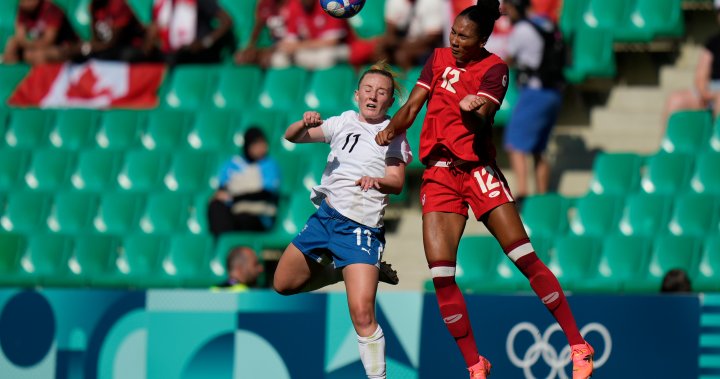The Court of Arbitration for Sport has upheld FIFA’s decision to penalize Canada’s Olympic women’s soccer team with a six-point deduction. The penalty was imposed after it was discovered that a Canadian staffer had used a drone to spy on the practices of the New Zealand team before the start of the competition at the Paris Games. The Canadian Olympic Committee and Canada Soccer had appealed the decision, arguing that it was disproportionate and unfairly punished the players who were not involved in the incident. In addition to the points deduction, Canada Soccer was fined over $300,000 and three coaches, including head coach Bev Priestman, were suspended for a year. The undefeated Canadian team now faces a must-win game against Colombia to advance to the next stage of the Olympic tournament.
Despite the appeal, the Court of Arbitration for Sport upheld FIFA’s decision, stating that the grounds for their ruling would be provided at a later time. The decision has left the Canadian team in a challenging position, as they must secure a victory against Colombia to have a chance at advancing in the tournament. The penalty not only affects the team’s standing in the competition but also impacts the coaching staff and the overall reputation of Canadian soccer. The incident has highlighted the consequences of unethical behavior in sports and the importance of maintaining fair play and integrity.
The use of technology to gain an unfair advantage has been a recurring issue in sports, prompting governing bodies to implement strict rules and penalties to deter such behavior. In the case of the Canadian women’s soccer team, the use of a drone to spy on an opponent’s practices resulted in severe consequences for the team and its coaching staff. The incident serves as a reminder of the need for transparency and ethical conduct in sports and the consequences of violating rules and regulations. The decision by the Court of Arbitration for Sport reinforces the message that cheating and unsportsmanlike behavior will not be tolerated in competitive sports.
The ruling has sparked discussions about the impact of the penalty on the Canadian women’s soccer team and the broader implications for the sport. The decision to uphold the points deduction and suspensions has raised questions about accountability and fairness in sports governance. It has also brought attention to the challenges faced by athletes and teams in maintaining a competitive edge while upholding the values of fair play and sportsmanship. Moving forward, the Canadian team will need to regroup and focus on their upcoming match against Colombia, with their Olympic hopes on the line.
In conclusion, the Court of Arbitration for Sport’s decision to dismiss Canada’s appeal of the points deduction and suspensions imposed on its women’s soccer team sends a strong message about the importance of integrity and ethical conduct in sports. The penalty serves as a reminder of the consequences of cheating and unfair practices in competitive sports and highlights the need for athletes and teams to uphold the values of fair play and sportsmanship. The Canadian team will now face a critical match against Colombia, where they will have to overcome the challenges posed by the penalty and strive to advance in the Olympic tournament. The incident serves as a cautionary tale for athletes and teams about the risks of engaging in unethical behavior and the potential repercussions for themselves and their sport.













